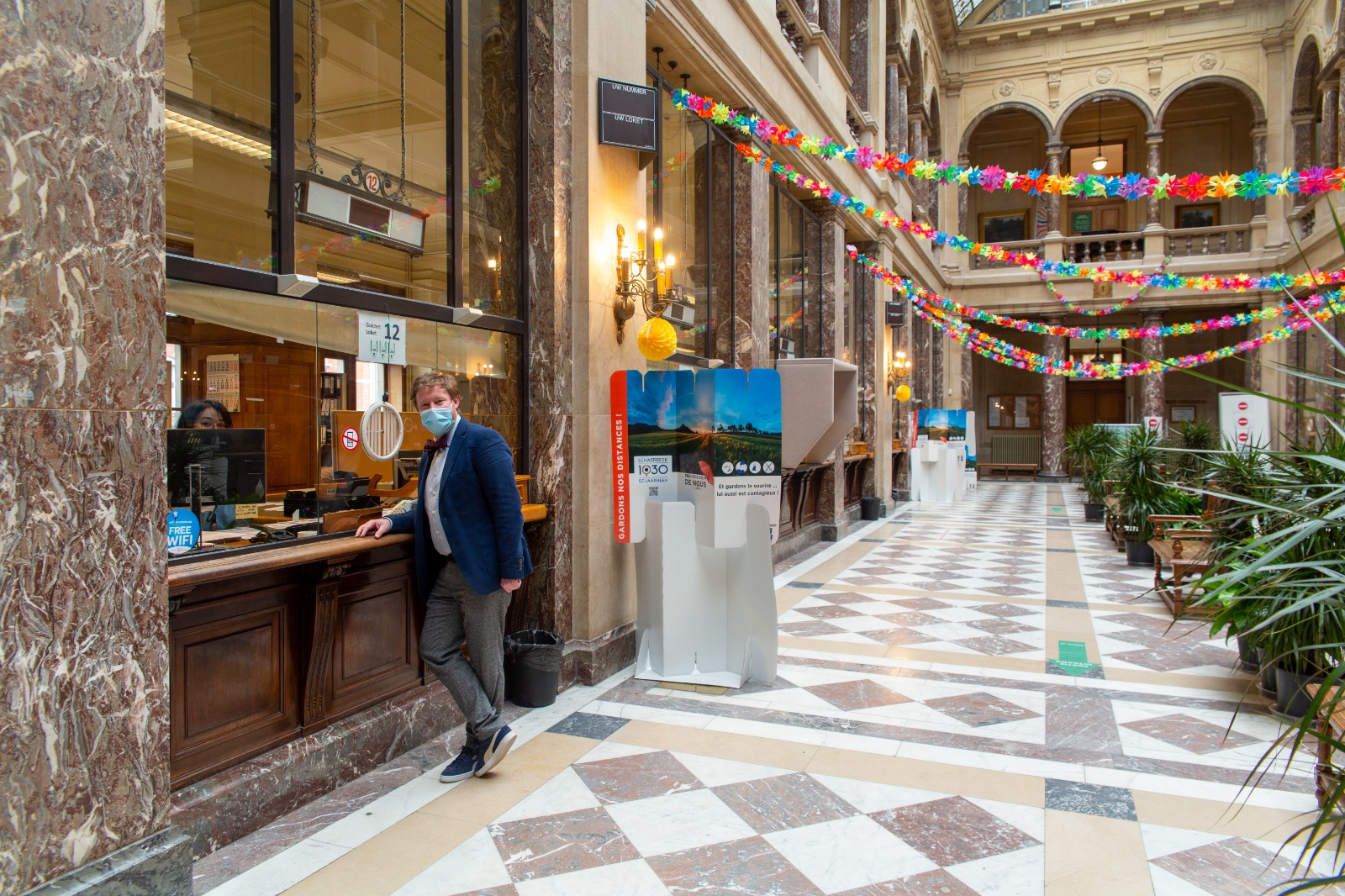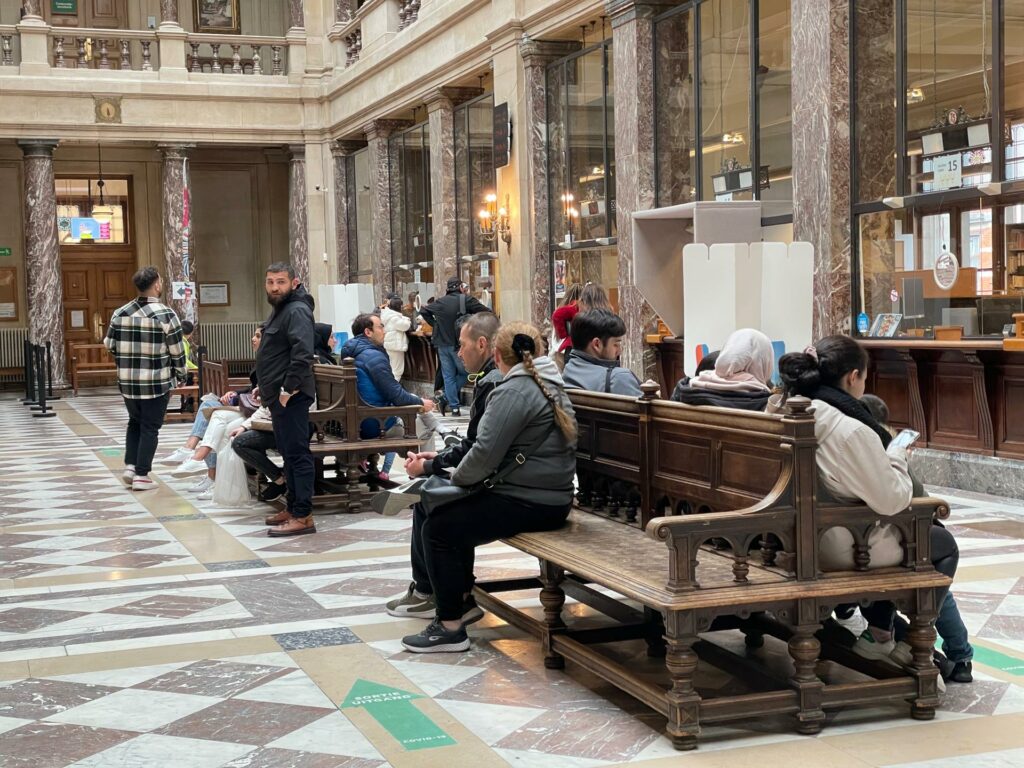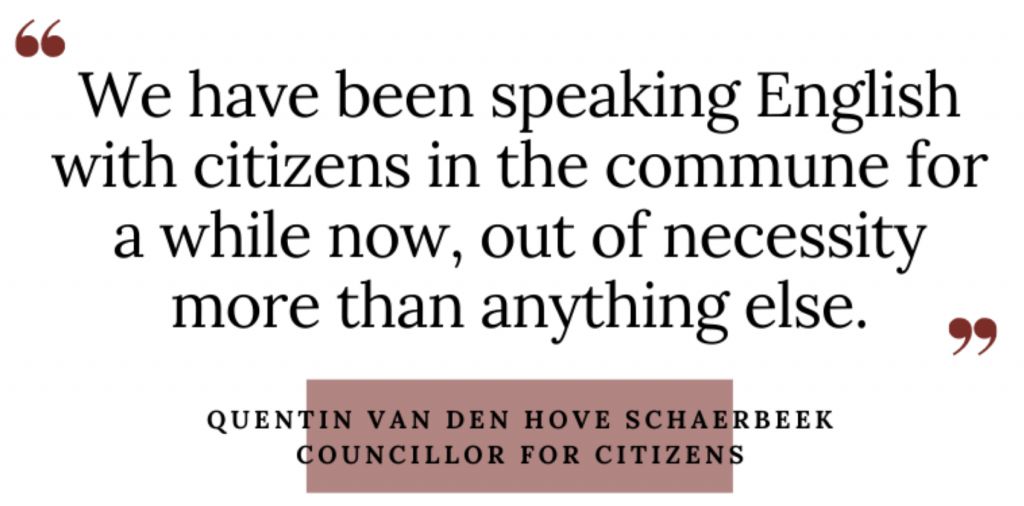In a move to accommodate foreign-born residents, civil servants of the Brussels commune of Schaerbeek have started assisting people in English, even carrying out weddings in the language.
The northeast municipality is home to around 165 nationalities, and as all communes in Brussels, must address the public in either French or Dutch. However, many of its citizens don't speak these languages, which is why Schaerbeek recently decided to officially offer its services in English.
"When you were near the municipal counters, you always heard people translating texts from one of the many languages spoken here to French or Dutch" Quentin van den Hove, Schaerbeek councillor for citizens, told The Brussels Times.
"We have been speaking English with people in the commune for a while now without there actually being a framework for it, out of necessity more than anything else. Since the beginning of this year, you can now officially speak in English at the commune of Schaerbeek."
All official documents handed over to residents must be in Dutch or French according to the 1966 Belgian Language Law, but the rules regarding the official spoken languages are vaguer. "We find ourselves in a grey zone, which is why many municipalities have not yet taken this step."
Most international language
The inclusion of an additional language was not a big step for employees working at the commune. Instead, it was a reassurance, according to van den Hove. "They found it important that there was a framework for the use of another language."
They opted for English, not because there are many British or American people living in Schaerbeek — some 490 British people and around 135 Americans live there — but because "English is the most international language today."
Van den Hove referred to a study by technology federation Agoria which found that ex-pats in Brussels rate the city administration poorly, and stated that multilingual reception staff are needed to boost the image of the capital. "Having worked for a multinational company myself, I think it's very important to do this to keep our region attractive for everyone," he said.
Civil servants in Etterbeek, where half of the 50,000 inhabitants are of a foreign origin, have also adapted to international communities by speaking English when necessary, and it even made its online platforms and registration systems available in English.
English wedding ceremonies
Schaerbeek even conducts weddings in English. "In such an international community, you have people from all over the world who are getting married. I started asking people who I was performing the wedding for: 'Shouldn't we do the wedding in English'?"
Although the official part of the wedding has to be done in one of the two official languages of the region with the use of an official translator, the parts before and after the officiation can be performed in English, which van den Hove says he does with a lot of pleasure.

Quentin van den Hove. Credit: Schaerbeek
"Every week, three or four out of about 15 weddings done at the commune are in English. You have marriages between people from the four corners of the world, from Japan to Canada to Turkey to Africa."
The commune is also creating a page on its website with the most important information translated into English.
Politics of language
Brussels Minister for the Promotion of Multilingualism Sven Gatz, who previously argued for a modernisation of the Language Law to include English as one of the main languages in Brussels, welcomed the decision made by some municipalities to speak English. Yet he questioned the legality of "speaking only English while still providing all forms in the official languages isn't allowed by law."
Van den Hove said the commune had expected legal or political backlash, but added that this hasn't happened yet. "I think there is more openness to the use of English now than before."
Gatz explained that following a pilot phase of this system, it would be helpful for Schaerbeek to share its experiences. "This could be discussed at the conference of mayors. From here, it can take root left and right. I do expect that municipalities will follow in the coming months and years," he told The Brussels Times.
Not a straightforward translation
When it comes to providing legal documents in English, the matter is more complicated, Gatz said. "It makes sense to amend the language legislation to make written services in English possible, but you can only do this at the federal level."
He stated that setting up a type of federal commission with lawyers and socio-linguists, among others, to analyse such possibilities could be the next step and is what other countries are doing.
"Until then, I believe it should be possible to evolve towards this 'friendly service to the citizen' without changing the fact that the national languages remain Dutch and French," Gatz said. "It's about defining what to include in this friendly service and what should be done in English."
However, van den Hove hopes for more than that, and for the language to be fully integrated: "English should become the third official language in the region, this seems obvious to me."


